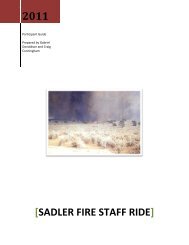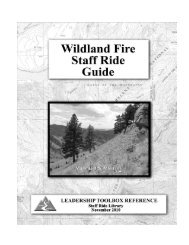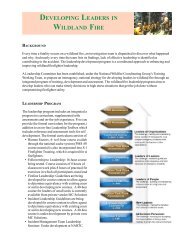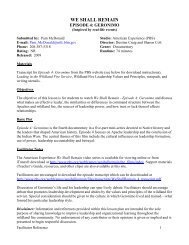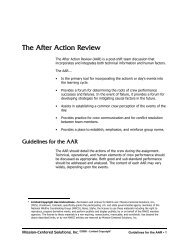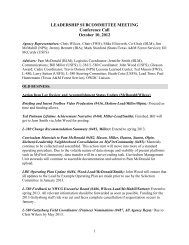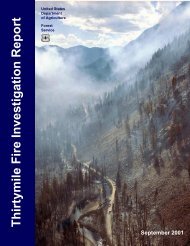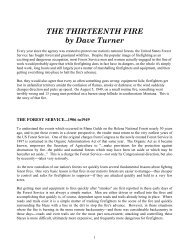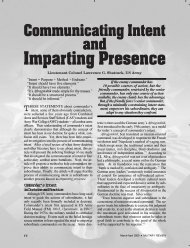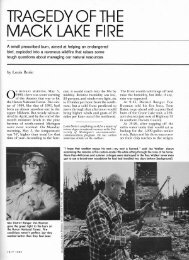example tdgs/stex #2 - Wildland Fire Leadership Development
example tdgs/stex #2 - Wildland Fire Leadership Development
example tdgs/stex #2 - Wildland Fire Leadership Development
You also want an ePaper? Increase the reach of your titles
YUMPU automatically turns print PDFs into web optimized ePapers that Google loves.
• Manage the Group: This means the ability to get as many people involved in the<br />
discussion as possible. The facilitator should prevent individuals from dominating<br />
the discussion. This is especially important when the group consists of widely<br />
different experience levels. It is important to set a tone of open candor, regardless<br />
of seniority.<br />
o “Timeouts” may be essential, at times, to keep the group focused on the<br />
learning objectives. This technique should not be frequently used. The<br />
facilitator should clarify the situation and resume action as quickly as<br />
possible.<br />
Facilitation Techniques<br />
1. The Art of Asking Questions<br />
• Active Listening: It is important that a facilitator knows when to ask questions,<br />
how to ask and answer questions, and how to defer questions or bounce them off<br />
the rest of the group. In essence the facilitator must combine appropriate questions<br />
with active listening.<br />
• Socratic Teaching Method: The Socratic method of teaching is an effective<br />
technique to consider when delivering TDGS/STEX. This method is effective<br />
because one of the most important things the facilitator does is probe the player's<br />
thought process in order to get the player to explain their rationale. The Webster’s<br />
Dictionary defines Socratic as:<br />
Of or relating to Socrates, his followers, or his philosophical method of systematic<br />
doubt and questioning of another to elicit a clear expression of something<br />
supposed to be implicitly known by all rational beings.<br />
• Avoid Leading Questions: This will cause the player to believe there is a<br />
“textbook” answer you are looking for. Examples of questions to avoid:<br />
o "Wouldn’t this have been a more effective course of action"<br />
Suggested change: “Did you evaluate any other alternatives”<br />
o "Do you really think that will work"<br />
Suggested change: “On a scale of 1 to 10, what do you think is your<br />
probability of success Explain”<br />
o “So by using air tankers, you really think you can still use direct attack on<br />
this flank”<br />
Suggested change: “What would you do if the airtanker drops missed the<br />
target”<br />
16



